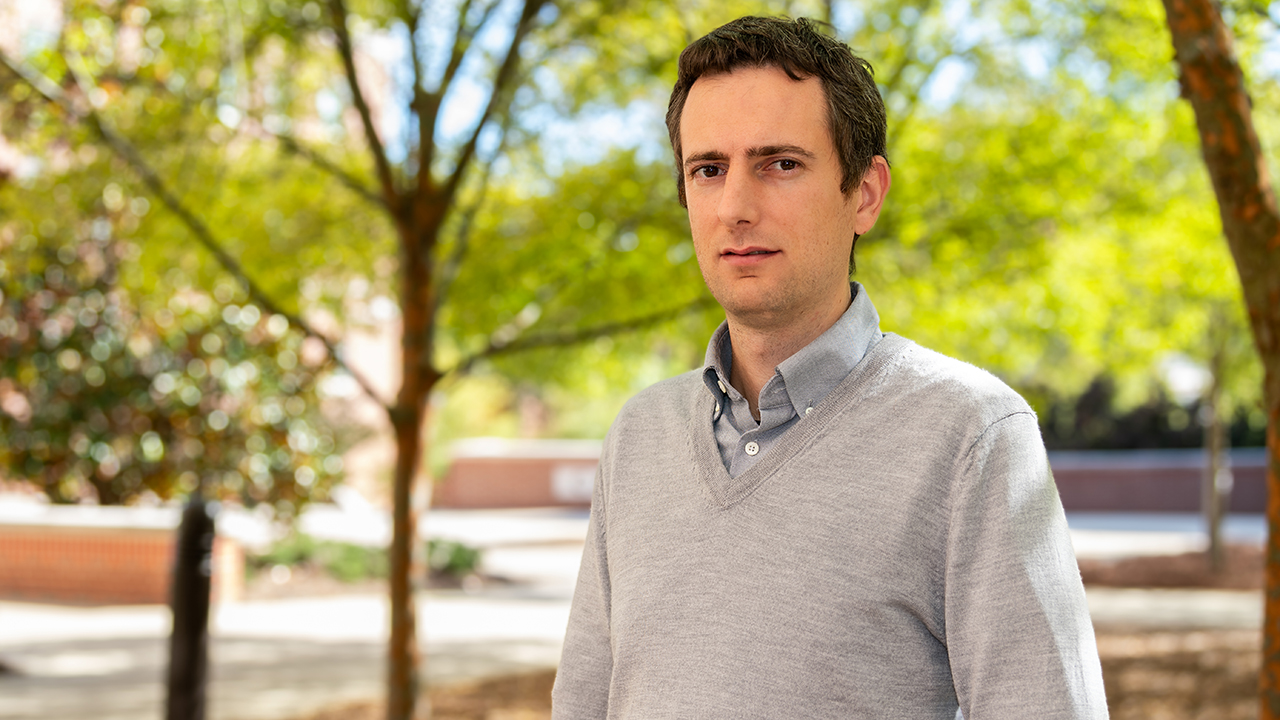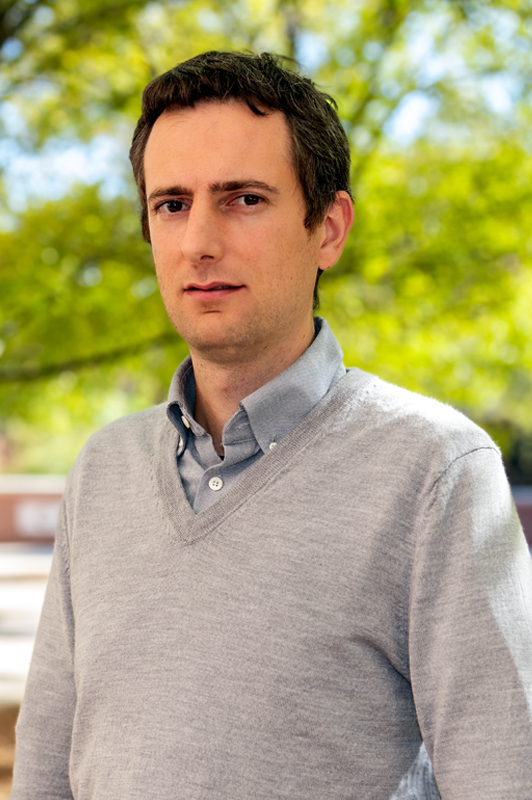Aerospace engineering assistant professor earns NASA Early Career Award
Published: Apr 3, 2024 1:30 PM
By Dustin Duncan
Millions of orbital debris may be floating around just beyond the Earth's atmosphere, which is a hazard for critical space systems that orbit close to Earth. Orbital debris can be created by a launch vehicle and satellite insertion into orbit, a system failure or anomaly, or an in-orbit collision.
Davide Guzzetti, assistant professor in the Department of Aerospace Engineering, has earned a NASA Early Career Faculty award to research how to remediate the accumulation of smaller pieces of orbital debris that are hard to track due to their size.
Guzzetti’s three-year project, “Metamaterial particles for orbital environment remediation,” will research the feasibility of developing technology to deploy dust clouds to intercept small debris to reduce their altitude by inducing drag. As altitude reduces, the debris will reenter and burn in the Earth’s atmosphere.
“I am humbled by the opportunity to spend my intellectual energies on something I believe to be very meaningful and important for society,” Guzzetti said.
According to Guzzetti, there are currently two important categories of debris. There is larger debris, usually larger than 10 centimeters in diameter. These are typically trackable and could potentially be physically captured.
Smaller debris, less than one centimeter in size, is more prevalent and more challenging to detect and track.
“What we are trying to solve is how to actively remove those smaller debris or facilitate their reentry into the atmosphere,” Guzzetti said.
Guzzetti is in the early phases of researching the topic and just scraping the surface of the possibility of a solution. However, he envisions the distribution of engineered particulates in targeted regions of space to bring the debris to the Earth’s atmosphere.
“One of the interesting questions is, what is the correct way of deploying the cloud? Do we deploy in bulk? Do we spread it out at different altitudes? That’s part of what we’ll be studying,” Guzzetti said.
Orbital debris, even if small, can act as projectiles impacting the spacecraft.
“While they might not blow up the spacecraft, they can certainly pierce critical components of the spacecraft, generating more debris of approximately the same size or comparable size,” Guzzetti said.
Also, uncontrolled accumulation of orbital debris may create the conditions for a Kessler Syndrome event, a phenomenon in which the amount of junk in orbit around Earth reaches a point that triggers a “chain-reaction” creation of more and more space debris, causing significant problems for satellites, astronauts, and mission planners.
Guzzetti said a magic wand or a single answer to the orbital debris remediation challenge may not exist. Still, he’s excited to join the researchers attempting to solve the problem. Additionally, he can help a few students obtain meaningful research experience due to the award.
“I think that is the most rewarding part. This award allows me to engage with minds brighter than mine on these problems and expose them to orbital mechanics and the complexity of space,” Guzzetti said. “It will allow them to conduct science and engineering research to respond to a real-world challenge.”
Brian Thurow, aerospace engineering chair, said the NASA Early Career Award is a significant and prestigious accomplishment for a faculty member early in their career.
“I am thrilled that Dr. Guzzetti is being recognized with a NASA Early Career Faculty Award,” Thurow said. "This award will give Dr. Guzzetti national recognition as a rising star in the field and provide him with the resources to pursue a novel solution to a problem that is widely regarded as becoming critically important over the coming decades.”
Media Contact: , dzd0065@auburn.edu, 334-844-2326
Davide Guzzetti, assistant professor in the Department of Aerospace Engineering, poses for a photo on Auburn University’s campus.


